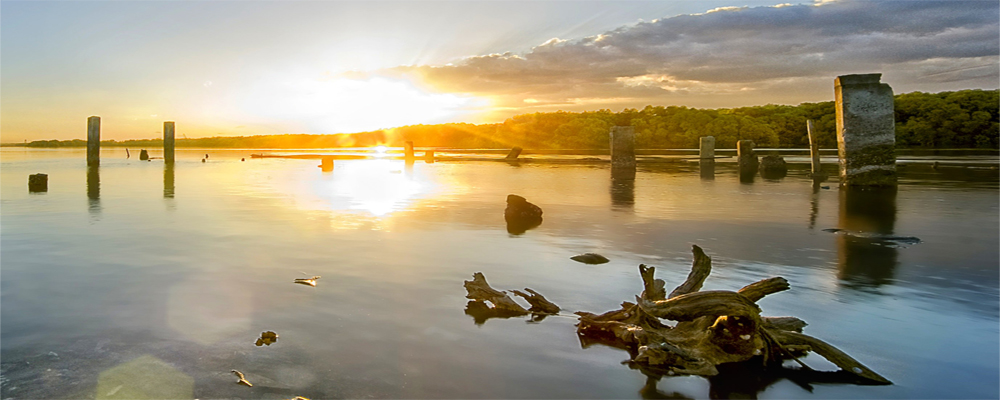
Background
The Philippines, with its rich and diverse natural resources, is one of the world’s 17 megadiverse countries. However, the country’s biodiversity is increasingly threatened and is in various states of exploitation and degradation. More than 93% of the country’s forest cover has been lost in the last 500 years, 70% of the country’s coral reefs are in poor or fair condition, a large amount of mangroves have disappeared, and over-fishing and other destructive fishing practices are rampant.
As a country with one of the world’s longest coastlines and highest coastline-to-area ratios, the Philippines has invested in land reclamation to increase the area available for infrastructure development and to stimulate growth. However, development along the coastlines can negatively impact near-shore ecosystems including coral reefs, seagrass beds, and mangroves.
For example, one area potentially affected by reclamation projects is the Las Piñas-Paranaque Critical Habitat and Ecotourism Area (LPPCHEA) in Manila Bay. This 175-hectare area was declared a “Critical Habitat” in April 2007 by Presidential Proclamation No. 1412 and was named a Wetland of International Importance by Ramsar in 2013. The site attracts migratory birds as well as indigenous and endemic species of waterbirds, including some that have been classified as threatened by the IUCN. It is the only sanctuary for wildlife in the heart of Metro Manila.
Scope of work
The TEEB Philippines study assesses the potential impact of land reclamation and coastal development plans in Las Piñas-Paranaque Critical Habitat and Ecotourism Area (LPPCHEA) in Manila Ba. Study results are intended to inform environmental compliance process.
To do so, the study employs a conservation, reclamation, and development scenario analysis focusing on mangroves. The study will characterize and, where possible, value potential changes in ecosystem service provisioning. The study will also identify the constituencies affected by trade-offs in ecosystem service provisioning, with a focus on vulnerable coastal population groups.
The following ecosystem services will be assessed:
 Regulation of extreme events: Storm surges may increase due to the deforestation of mangroves and loss of other coastal buffers. These losses, as well as the potential impacts of reclamation on ground subsidence, are examined under different scenarios.
Regulation of extreme events: Storm surges may increase due to the deforestation of mangroves and loss of other coastal buffers. These losses, as well as the potential impacts of reclamation on ground subsidence, are examined under different scenarios.
 Aesthetic appreciation, cultural inspiration, and spiritual experience: The study examines the impact of reclamation on aesthetic values in project sites.
Aesthetic appreciation, cultural inspiration, and spiritual experience: The study examines the impact of reclamation on aesthetic values in project sites.
 Provision of raw materials: The study examines how the provisioning of raw materials in these three sites would differ under various scenarios. Examples include fuelwood or construction materials from mangroves and seagrass from seagrass beds.
Provision of raw materials: The study examines how the provisioning of raw materials in these three sites would differ under various scenarios. Examples include fuelwood or construction materials from mangroves and seagrass from seagrass beds.
Publications and resources
Events and meetings
- TEEB Philippines Final Workshop (Manila, June 2017)
- TEEB Country Study International Workshop (Cancún, December 2016)
- TEEB Philippines National Workshop (Manila, June 2014)
- TEEB Philippines Scoping Workshop (Manila, March 2014)
Status: Ended
Host Ministry:
 Biodiversity Management Bureau (BMB)
Biodiversity Management Bureau (BMB)
Department of Environment and Natural Resources (DENR)
Research institution:

Resources, Environment, and Economics Center for Studies (REECS)
Other partners
- UNDP Biodiversity Finance (BIOFIN)
- World Bank Wealth Accounting and the Valuation of Ecosystem Services (WAVES) Partnership
- Palawan Council for Sustainable Development
- ASEAN Centre for Biodiversity
- National Economic and Development Authority (NEDA)
- Laguna Lake Development Authority (LLDA)
- Climate Change Commission
- World Agroforestry Center ‘Biodiversity and Watersheds Improved for Stronger Economy and Ecosystem Resilience’
- Foreign-Assisted and Special Projects Office
- Ecosystems Research and Development Bureau
This study is supported by the European Commission as part of the “Reflecting the Value of Ecosystems and Biodiversity in Policy-Making” project.


